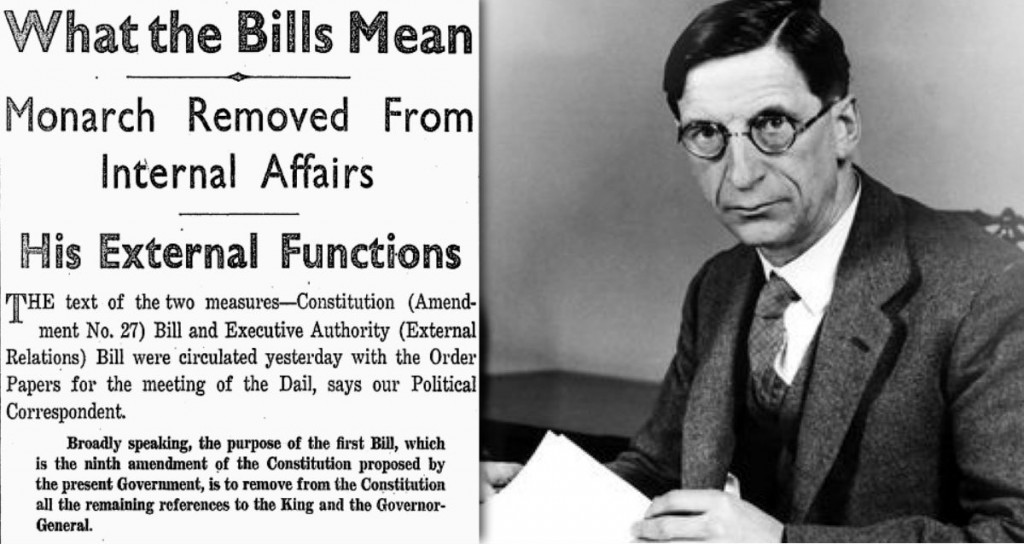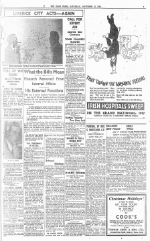
External Relations Act 12.December.1936
On this day in 1936 the External Relations Act was passed by Dáil Eireann, a significant moment in both the development of the Irish Free State and of the political career of Eamon de Valera.
It was the culmination of four years’ work in reducing British influence over Irish affairs by the leader of Fianna Fáil, since coming to power after the 1932 general election. The culmination of the 1936 abdication crisis in Britain, when Edward VIII signed an ‘Instrument of Abdication’ on 10 December 1936 was seized upon by de Valera as an opportunity to almost completely eliminate the role of the Crown, including the abolition of the office of governor-general. The Constitution (Amendment No. 27) Act 1936 was then rushed through the Oireachtas, amending the constitution by transferring all the responsibilities to other offices. he Constitution Amendment Act abolished the remaining legislative, executive, and constitutional functions of the monarch in the internal affairs of the Irish Free State. However, the External Relations Act confirmed his role in external affairs. As long as the Free State was associated with the other Commonwealth states, the king—recognized by them as ‘the symbol of their co‐operation’ and acting on their behalf for the purposes of diplomatic and consular appointments and the conclusion of international agreements—was authorized to act for the Free State for similar purposes ‘as and when advised by the Executive Council’. The External Relations Act, a variant of de Valera's theory of external association first set out in Document No. 2, was unaffected by the 1937 constitution of Ireland. It was repealed in 1948 by the first interparty government led by John A. Costello and marked Ireland’s withdrawal from the Commonwealth. Download The Irish Press 12.December.1936 Page 9